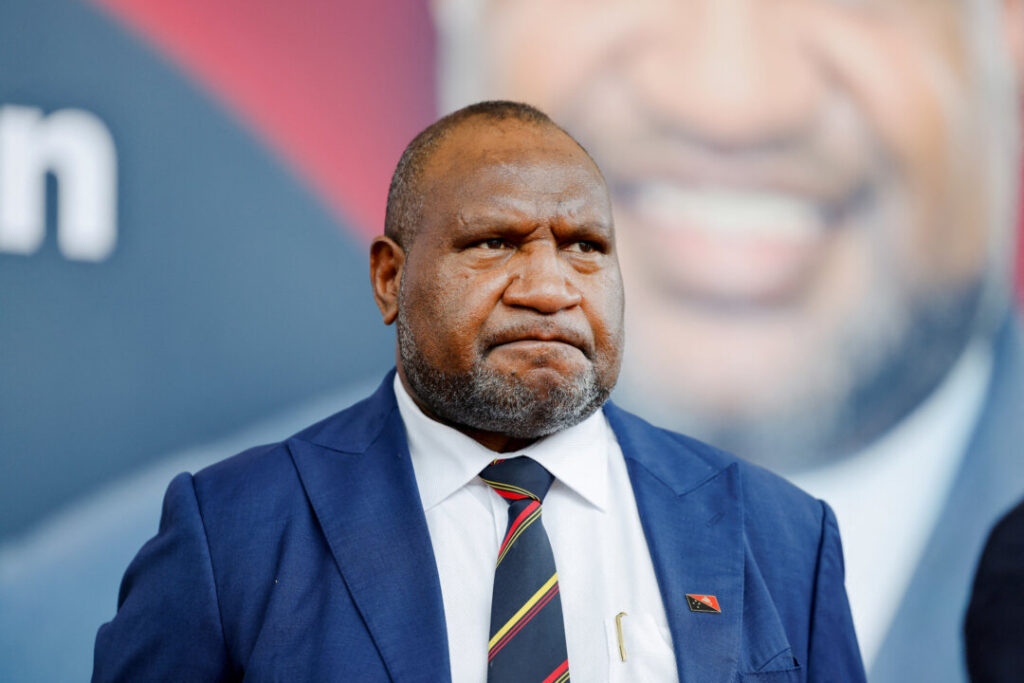
Papua New Guiney Prime Minister James Marape waits for French President Emmanuel Macron at APEC haus in Port Moresby on July 28, 2023. (Photo by Ludovic MARIN / AFP) (Photo by LUDOVIC MARIN/AFP via Getty Images)
China has issued a warning to Papua New Guinea (PNG) regarding a potential mutual defense pact with Australia. On September 18, 2023, the Chinese Embassy in PNG expressed concerns about the treaty, advising the nation to “properly handle issues bearing on its sovereignty and long-term interests.” The statement encouraged PNG to collaborate with China to enhance “China-PNG relations and mutually beneficial cooperation.”
The warning comes shortly after Australian Prime Minister Anthony Albanese and PNG Prime Minister James Marape met in Port Moresby on September 17 to discuss defense matters. During this meeting, they signed a defense communiqué, but did not finalize the treaty, referred to as the Pukpuk Treaty. Albanese later indicated that the treaty would be signed following the appropriate “Cabinet processes in both countries.”
The proposed Pukpuk Treaty signals a strengthening of defense ties between Australia and PNG, which lies just north of Australia and is its closest neighbor. The treaty aims to bolster security cooperation amidst growing concerns about regional stability and influence, particularly from China.
China’s warning reflects its ongoing strategy to maintain strong relations with Pacific island nations, which have increasingly become focal points in geopolitical rivalries. The Chinese Embassy’s statement underscores the potential implications for PNG if it aligns more closely with Australia, a move that Beijing perceives as contrary to its interests in the region.
Since the establishment of diplomatic relations in 1976, China and PNG have developed a multifaceted partnership encompassing trade, investment, and infrastructure development. In recent years, China has become PNG’s largest trading partner, further complicating the dynamics of international relations in the Pacific.
As PNG navigates this complex landscape, the decisions made in the coming weeks regarding the Pukpuk Treaty could significantly affect both its national security and its diplomatic relationships. The situation underscores the delicate balance that PNG must maintain between its historical ties with Australia and its growing relationship with China.
The upcoming discussions and cabinet decisions will be critical in determining the course of PNG’s defense policy and its positioning in the region. Both Australia and China are keenly observing these developments, as they reflect broader trends in international politics and regional security.






